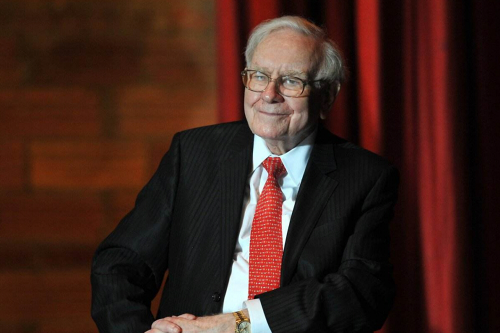5 Lessons Ordinary Investors Can Learn from Warren Buffett
Annalyn Kurtz
Dubbed the Woodstock for capitalists, the annual meeting of Berkshire Hathaway (BRK.A, BRK.B) is scheduled for this weekend. Every year, tens of thousands of investors travel from around the world to Nebraska to pay homage to their hero, billionaire Warren Buffett.
But here’s the good news: You don’t have to schlep that far to benefit from Buffett’s sage advice. Here’s a list of some of the top investing tips from the so-called Oracle of Omaha.
1. Be greedy when others are fearful, and fearful when others are greedy.
Buffett repeated this advice frequently in 2008, in the middle of the Great Recession. At the time, fear was widespread and stocks were tanking, but Buffett said he was nevertheless buying stocks anyway. In an op-ed in The New York Times, he recommended ordinary investors do the same.
The reason: Stocks are cheapest when fear is running high and a herd mentality has beaten down their prices well below business fundamentals warrant.
“A large percentage of Buffett’s performance has been due to buying quality companies when the markets are crashing,” says Kirk Kinder, the founder and president of Picket Fence Financial in Palm Harbor, Florida. “Usually, when the markets are reaching a peak, and optimism is peaking, Buffett has lots of cash ready to deploy when the downturn comes.”
2. Easy does it.
“After 25 years of buying and supervising a great variety of businesses, Charlie and I have not learned how to solve difficult business problems. What we have learned is to avoid them,” Buffett wrote in his 1989 letter to shareholders. (Charlie refers to Charlie Munger, Buffett’s longtime business partner and right-hand man.)
In other words, Buffett recommends investors stick with what they know.
“To the extent we have been successful, it is because we concentrated on identifying one-foot hurdles that we could step over rather than because we acquired any ability to clear seven-footers,” Buffett wrote. “The finding may seem unfair, but in both business and investments it is usually far more profitable to simply stick with the easy and obvious than it is to resolve the difficult.”
Needless to say, Buffett is not a fan of bitcoin and other get-rich-quick fads.

3. Buy into a company because you want to own it, not because you want the stock to go up.
Buffett gave Forbes magazine that advice in 1974, and has repeated it many times since.
In other words, owning stock in a company equates to direct ownership in a business, so treat it is as such. If you owned an apartment, house or farm, you wouldn’t sell it based on whims or news reports, he says. Treat stocks the same way – only buy them for the long haul and because you believe in the underlying value of the business.
4. Be patient.
Buffett famously said, “The stock market is a device for transferring money from the impatient to the patient.”
Brendan Mullooly, a financial planner based in Wall Township, New Jersey, calls it the single most important lesson investors can learn from the investing guru.
“When looking to learn from any great investor, Buffett included, it can be tempting to look for specific strategies to emulate,” Mullooly says. “The mistake is in believing that there’s some sort of secret investment hack to discover that will make you as rich as them. In reality, all of the best investors have much more boring things in common, like patience. It’s too much of a letdown to think that Warren Buffett’s superpower might just be patience because anybody can have patience. The problem is that nobody wants to have patience.”
5. If you don’t know much about investing, don’t sweat it.
“Most investors, of course, have not made the study of business prospects a priority in their lives. If wise, they will conclude that they do not know enough about specific businesses to predict their future earning power,” Buffett wrote in his 2013 letter to Berkshire Hathaway shareholders.
“I have good news for these non-professionals: The typical investor doesn’t need this skill,” he added. Just invest your funds in a low-fee index fund tracking a broad cross-section of businesses, he advises.
When Buffett eventually passes away, he has this advice for his wife’s trustee: Invest 10 percent of her cash in short-term government bonds and the other 90 percent in a low-cost index fund tracking the Standard & Poor’s 500 index. (He suggests Vanguard).
That’s a simple model nearly any ordinary investor can replicate.








